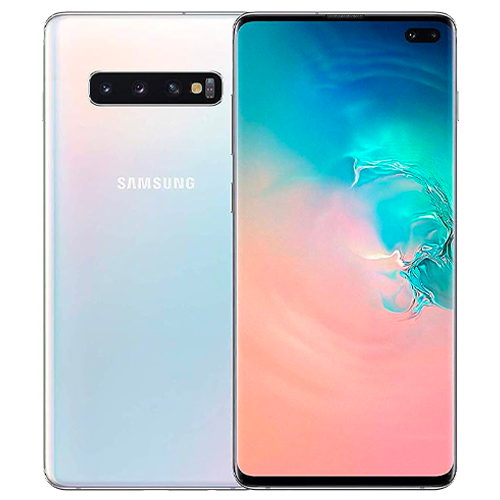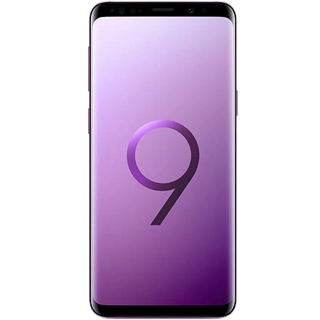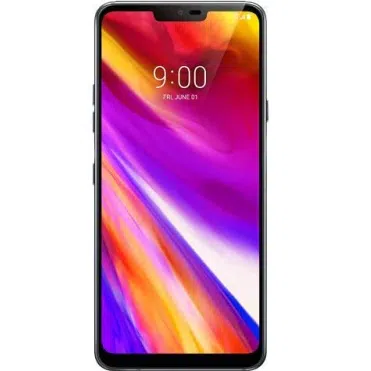
Buying a cell phone can be exciting, especially with so many options available in the market today. From high-end flagships to budget-friendly devices, there’s a smartphone for every need and preference imaginable. However, with plenty of features to consider, it can be challenging to make the right decision. In this article, we’ll guide you through the process of how to choose a smartphone that perfectly suits your needs and budget.
Table of Contents
- Consider the Operating System
- Which Cell Phone Brand?
- What is Your Budget?
- What Features do You Need?
- What About 5G?
- Can I Keep my Phone Number?
- Where Can I Buy a Phone in Canada?
- Should I Buy my Phone Outright?
Key Takeaways
- How to choose a smartphone depends on your needs and circumstances.
- Understanding your budget and which features are essential to you can help narrow down your choices.
- Every brand has advantages and drawbacks.
- Apple and Samsung offer good options if you’re looking for more premium devices. If you’re looking for budget-friendly smartphones, Google, LG, or Huawei offer more affordability.
Consider the Operating System
The operating system is the heart and soul of your device. It determines the user interface, available features, and how it functions. There are two main operating systems for smartphones: Android and iOS. When choosing an operating system, it’s essential to consider app availability, security features, and overall user experience. Here’s a breakdown of the two:
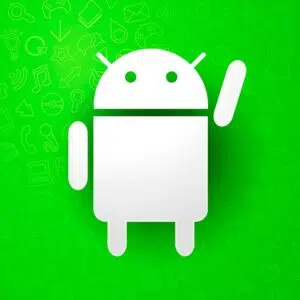
Android
Android is an open-source operating system (OS) used by various smartphone manufacturers. It’s a versatile option with a customizable interface to make your user experience uniquely your own. To personalize your device, you can choose from different launchers (widgets, app drawers, and other display features). This operating system also has a vast collection of apps on the Google Play Store, with easy download and installation.
Android devices are available at different prices, making them excellent options for those on a budget. However, the many choices and customizations available can be overwhelming for some users.
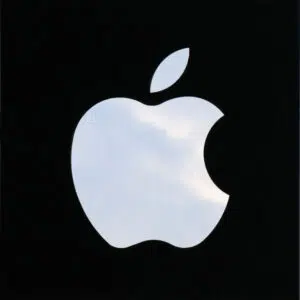
iOS
iOS is an exclusive operating system for Apple devices, including iPhones, iPads, and iPods. It has a clean and intuitive interface, making it easy to navigate, even for first-time users.
Additionally, this operating system has a tightly controlled ecosystem that ensures app quality and security. Apps must undergo a rigorous review process before becoming available on the App Store to reduce the risk of malware and viruses. iOS devices receive timely updates, ensuring your smartphone has the latest security features and bug fixes.
However, despite the excellent security and intuitive experience, there are limited customizations for iOS compared to Android.
Which Cell Phone Brand?
There are many brands out there to choose from, each with its benefits and drawbacks:
Apple
Apple is one of the world’s most well-known and highly regarded smartphone brands. Known for its premium iPhones, it has a strong reputation for delivering premium quality with advanced features. The iPhone has been a dominant player in the smartphone market for over a decade, and tech enthusiasts and Apple fans alike eagerly anticipate each new release.
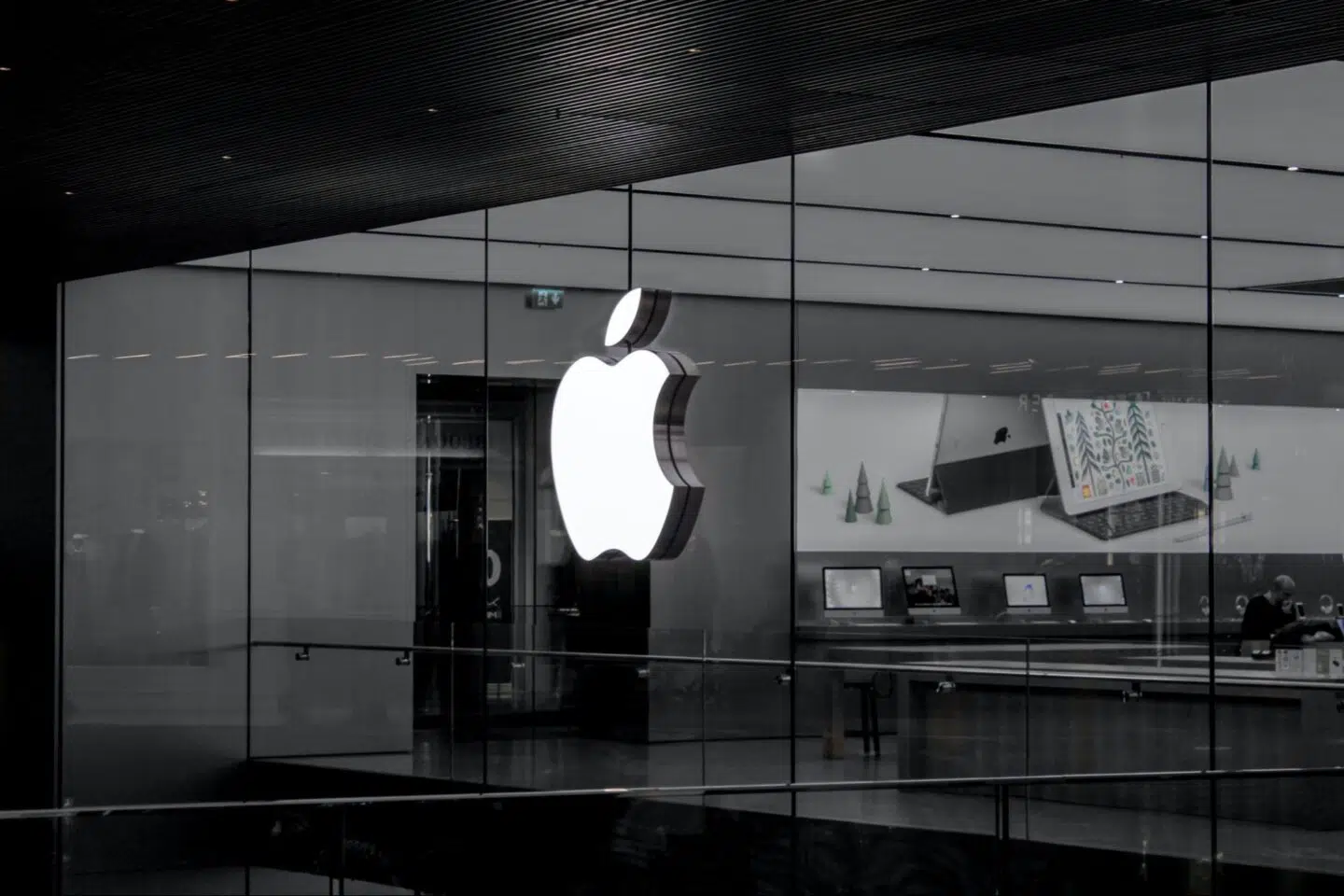
| PROS | CONS |
|---|---|
| A user-friendly and intuitive iOS operating system that’s easy to use. | Apple devices are expensive compared to other brands. |
| High-quality cameras that offer excellent photo and video quality. | Limited compatibility with other devices and apps outside of the Apple ecosystem. |
| Regular software updates to keep up with security measures. | Limited customization options to make your device truly feel like your own. |
| Excellent performance and battery life. |
Samsung
Samsung is another leading player in the smartphone market, offering a range of devices at different price points. They’re known for their high-end and durable displays, which provide excellent picture quality.
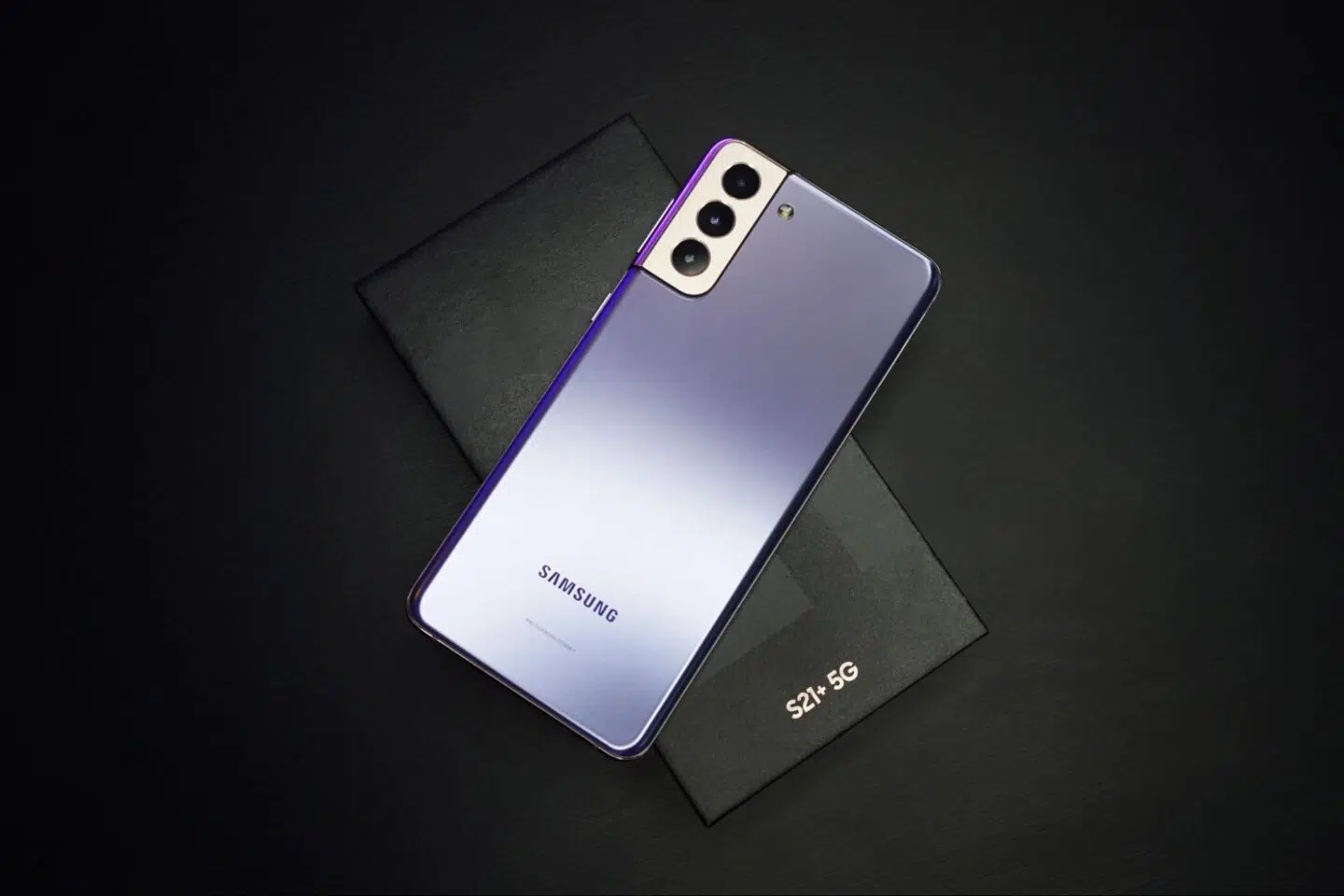
| PROS | CONS |
|---|---|
| High-quality OLED screens for better visuals and less power consumption. | Known for bloatware, with many pre-installed apps that cannot be removed. |
| A broad range of devices are available at different prices, making it easier to find a phone that suits your budget. | Some devices may not receive timely software updates. |
| A customizable user interface using the Android OS allows you to personalize your device. | Build quality can vary, with some Samsung phones experiencing issues like overheating or significant battery decline after a few years. |
| Durable and long-lasting. |
Google is a relatively new player in the smartphone market, but its Pixel devices have quickly gained a loyal following. The Pixel line is known for its high-quality cameras and clean, user-friendly interface.
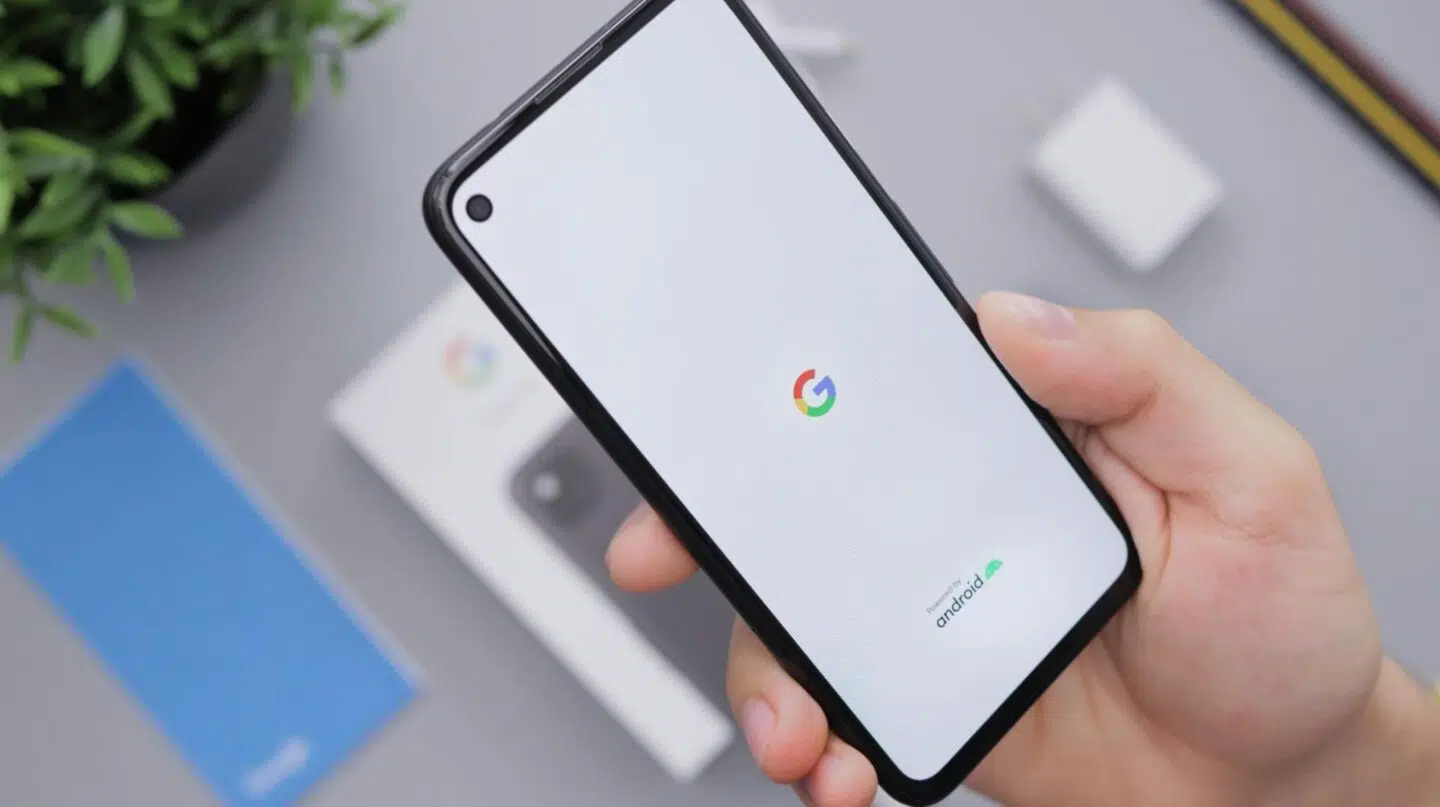
| PROS | CONS |
|---|---|
| High-quality cameras offer impeccable photo and video quality. | Limited device variety, with only a few models available. |
| Google Assistant integration allows you to control your device using voice commands. | No longer offers unlimited Google Photo storage on newer models. |
| Timely software updates that ensure the device is up-to-date with the latest security features and bug fixes. | Accessories may be limited compared to other brands. |
| A user-friendly operating system (Android) that’s easy to navigate. |
LG
LG is another Android smartphone manufacturer. The brand offers high-quality displays, a customizable user interface, and devices at various prices to suit your needs and budget. LG also offers a range of audio products seamlessly compatible with their smartphones, like headphones and speakers.
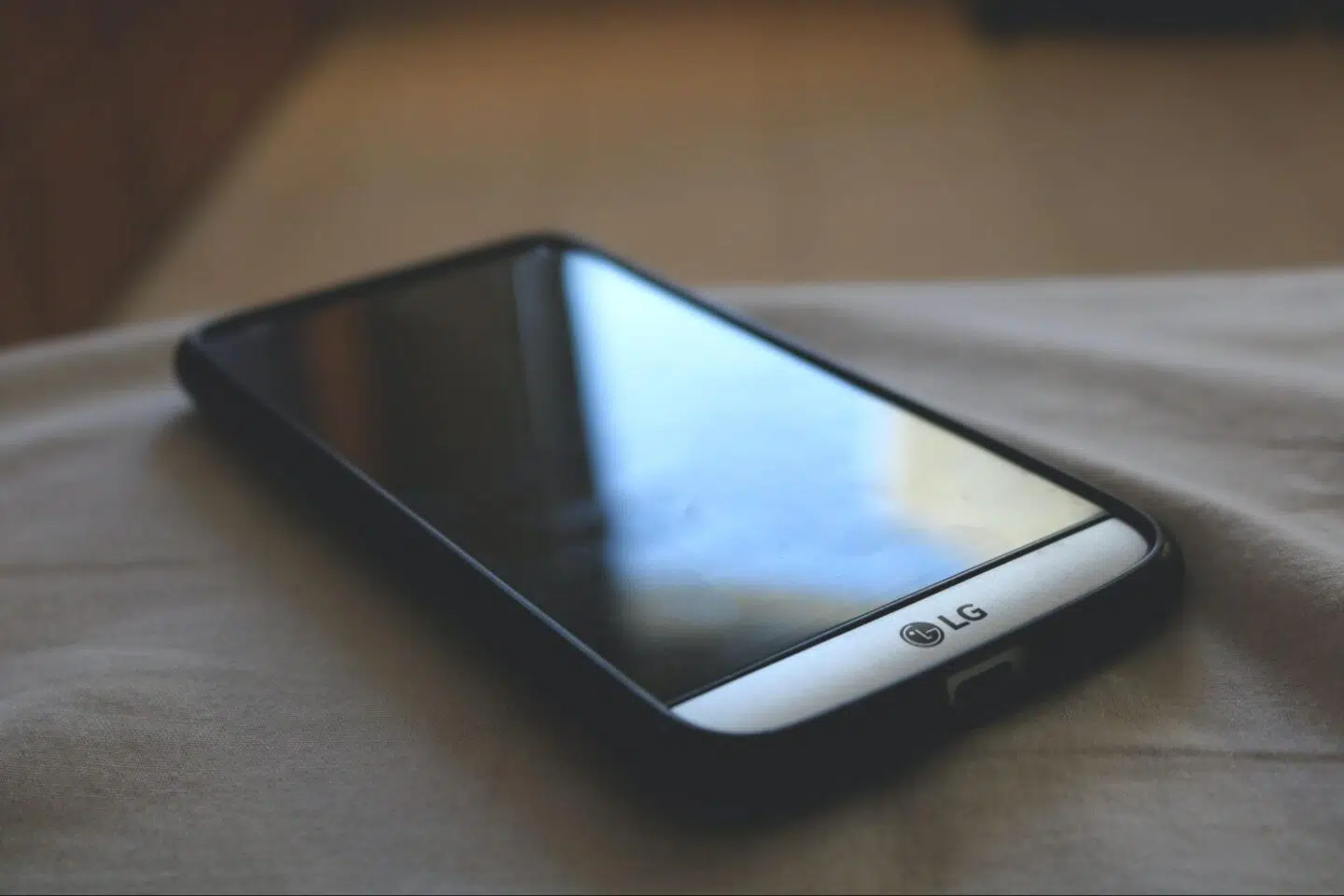
| PROS | CONS |
|---|---|
| Known for high-quality audio output, making them an excellent choice for music lovers. | Many pre-installed apps cannot be uninstalled, taking up valuable storage space and slowing down performance. |
| Solid camera performance. | Some devices may have shorter battery life and smaller capacity. |
| Decent and reliable overall performance. | Slow updates, leaving users behind on necessary security and bug fixes. |
| High-quality displays offer vivid colours and excellent viewing angles. |
Huawei
This Chinese smartphone manufacturer has gained popularity in recent years. With high-quality devices providing advanced features and impressive performance, Huawei has quickly secured a loyal user base worldwide.
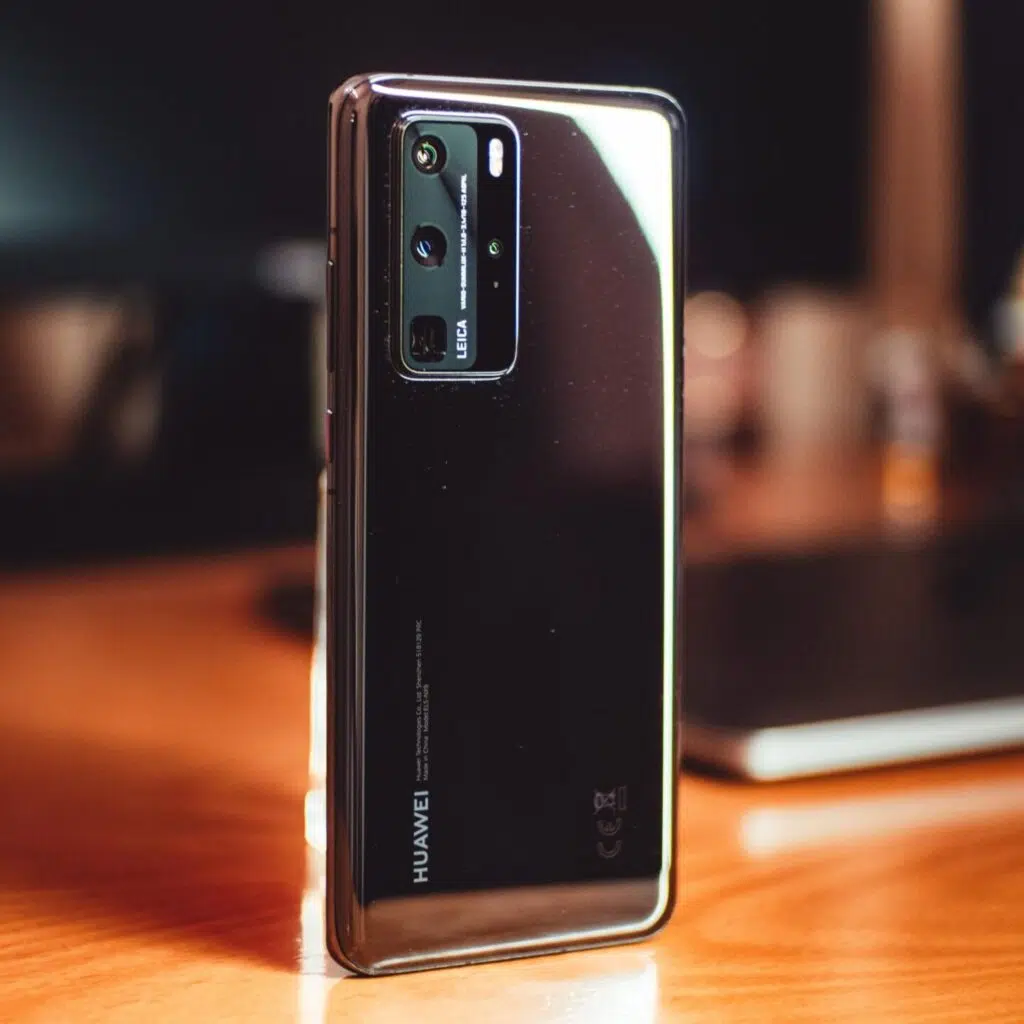
| PROS | CONS |
|---|---|
| Excellent camera capabilities for taking photos under various conditions. | No support for Google Play services and apps like Gmail, Chrome, or YouTube. |
| Known for extended battery life. | Less intuitive user interface compared to other Android-based devices. |
| Wide range of models at various prices. | Slow software updates can leave users vulnerable to security breaches. |
| Fast charging options allow you to remain productive on the go. |
What is Your Budget?
When buying a cell phone in Canada, your budget is one of the most important factors to consider. This will determine which devices are within your reach and help you choose which features and capabilities are most important to you. Understanding your budget can be challenging, so here are a few things to consider:
- Think about how much you can comfortably afford to spend on a smartphone. This may depend on your income, expenses, and other financial obligations.
- Let your budget guide you to which phones to consider. Avoid models that are way out of your price range to prevent getting financially stuck.
- Consider how frequently you plan to upgrade your phone — if you want to keep it for many years, a larger investment may be more cost-effective than numerous smaller purchases over a few years.
Once you have a budget in mind, you can use it to help you choose a phone that meets your needs. For example, if you have limited resources, you may want to look for mid-range devices that offer a good balance of performance and features at a lower price point. On the other hand, if you can afford to spend more, you can consider higher-end devices with cutting-edge technology.
Save up to 50% on a Certified Pre-owned Phone vs buying a new one.
Save big when you shop our selection of Certified Pre-Owned phones. 64-point inspection and a limited lifetime warranty for eligible customers*.
Shop now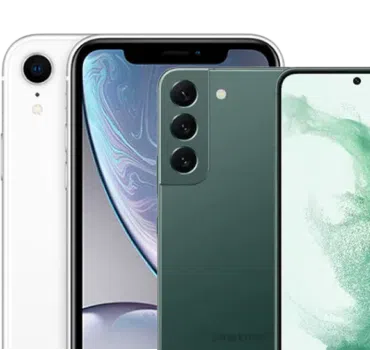
What Features do You Need?
Price isn’t the only detail to consider when figuring out how to choose a cell phone. While it can be tempting to opt for the most expensive device on the market, this may not always be the best choice for your needs. Instead, consider which features and capabilities are most important to you, and look for devices that offer those within your budget.
Camera
The camera is an essential feature for many users, as it provides the ability to capture all of life’s greatest moments on the go without needing to lug a DSLR around. If you enjoy taking photos and videos, you’ll want a smartphone with a high-quality camera. Look for a device with a high megapixel count and a large aperture for better low-light performance. Also, consider whether you need features like optical image stabilization to avoid blur or a telephoto lens for better zoom capabilities.
Camera Spotlight: iPhone 13 Pro Max
The iPhone 13 Pro Max offers some of the best camera quality in the smartphone market, with a 12MP camera system featuring Telephoto, Wide, and Ultra Wide cameras. It also has optical image stabilization to avoid camera shake and True Tone flash to help with correct light and colour.
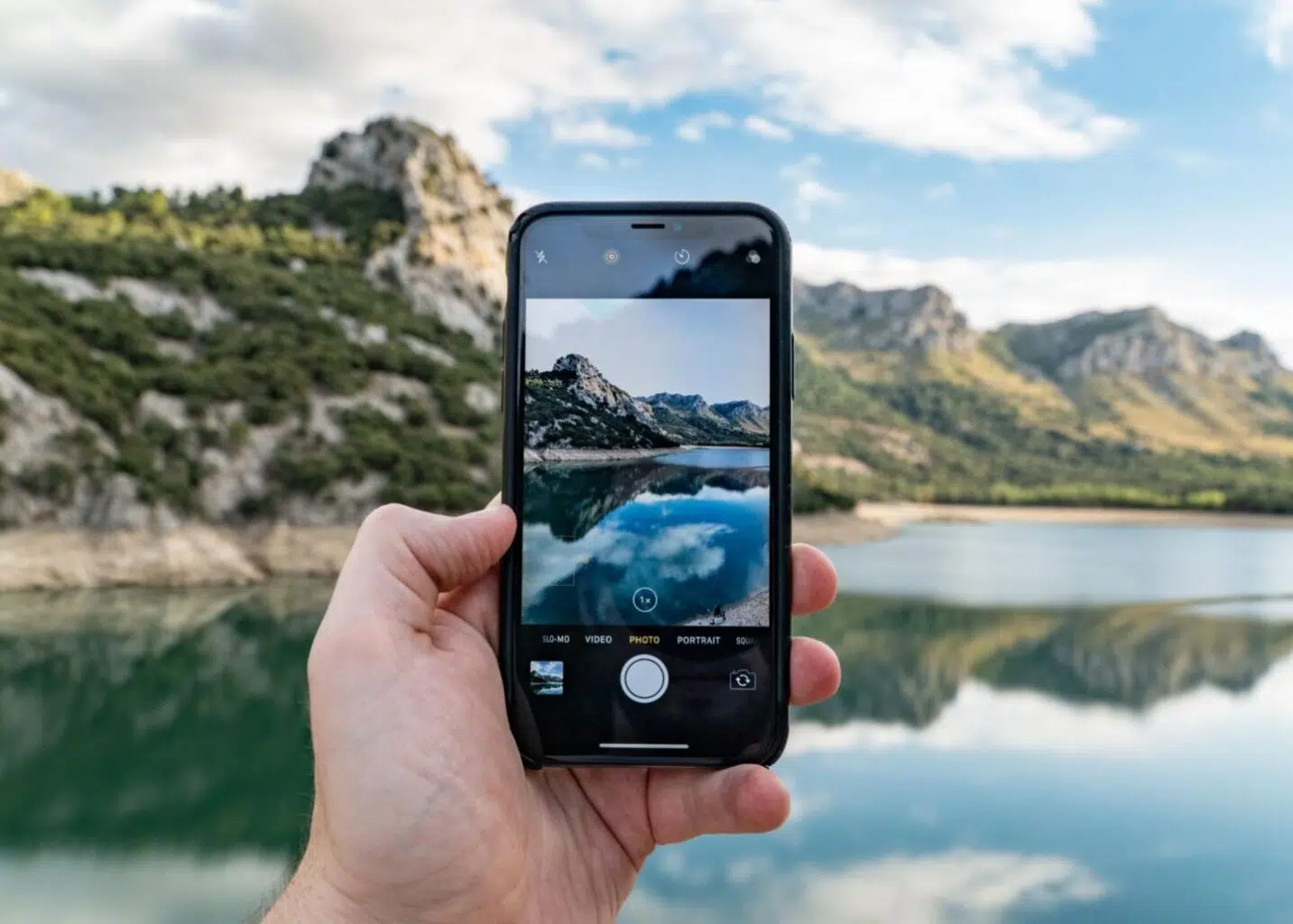
Screen
When considering how to choose a smartphone, the screen is another crucial feature. Look for a device with display technology like OLED or AMOLED for better colour accuracy and brightness. Most modern smartphones have resolutions of at least 1080 x 1920 pixels (Full HD or 1080p). However, some high-end devices offer Quad HD (1440 x 2560 pixels) or 4K (2160 x 3840 pixels). The higher the resolution, the better your viewing experience. Also, consider the screen size and aspect ratio. Larger screen sizes can make it easy to view content, but it can also make the device less portable.
Some smartphone screens may use materials designed for durability and scratch resistance, so if you’re someone who drops your phone, this would be an excellent feature to consider.
Display Spotlight: Samsung Galaxy S22 Ultra
The Samsung Galaxy S22 Ultra has the brand’s best screen yet. Its 6.8-inch Dynamic AMOLED display is brighter than other models in the market, which makes it perfect for outdoor phone use. It also has impeccable colour saturation for more vibrance and a better viewing experience.
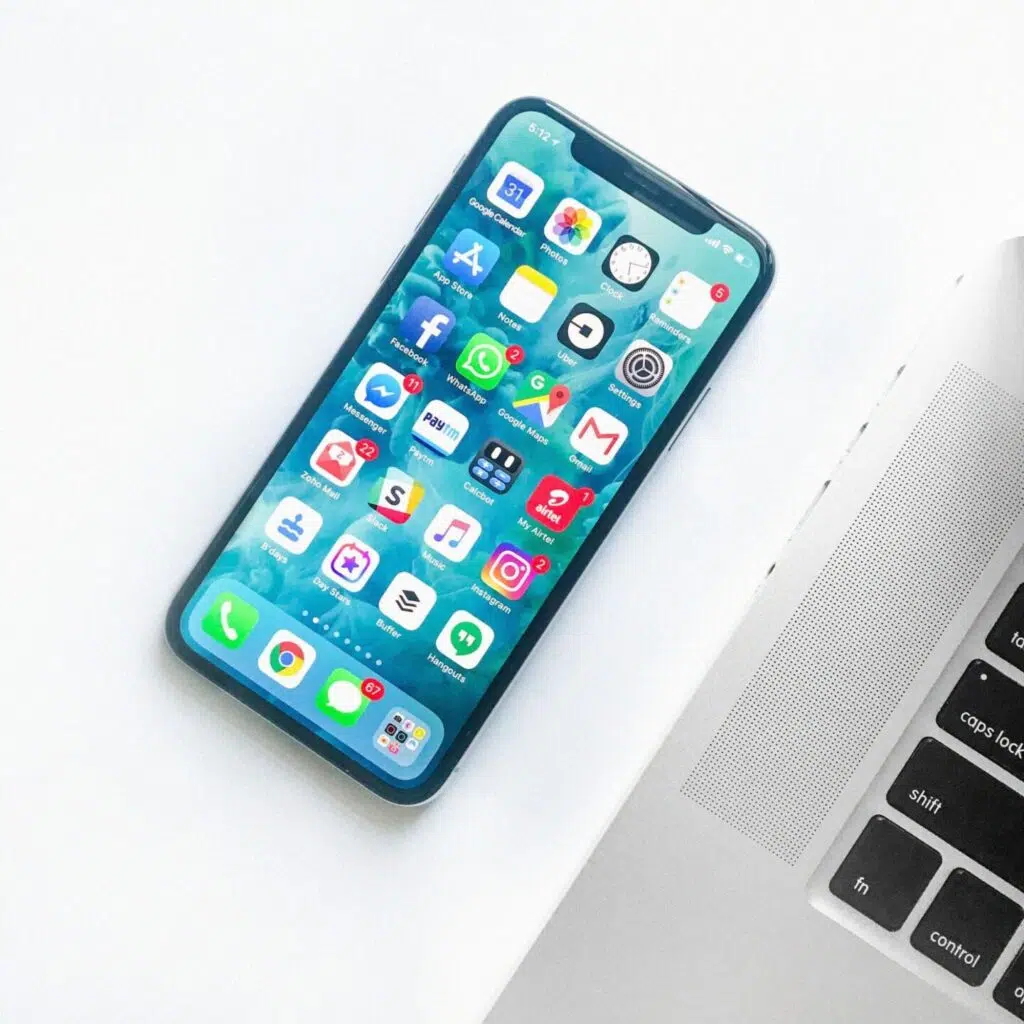
Screen Size
Screen size is all about your comfort levels. For example:
- Larger screen sizes can be harder to hold or fit in your pocket but may offer better viewing experiences. As mentioned above, higher resolutions mean sharper images, which you’d also get with larger screens.
- If you have smaller hands or prefer more compact designs, smaller screen sizes may work best for you.
It’s important to consider your primary uses for your device. If you are looking for a more immersive experience, larger screens can be better, especially if you frequently use your phone to stream video or play games. In contrast, if you use your smartphone for the basics, like messaging and browsing, a smaller screen may offer optimal comfort.
Screen Size Spotlight: Samsung Galaxy S21 Plus
While not the biggest in the line, the Samsung Galaxy S21 Plus offers a 6.7-inch Dynamic AMOLED display, ideal for watching videos or movies. It’s slightly smaller than other devices, which makes holding it more comfortable.
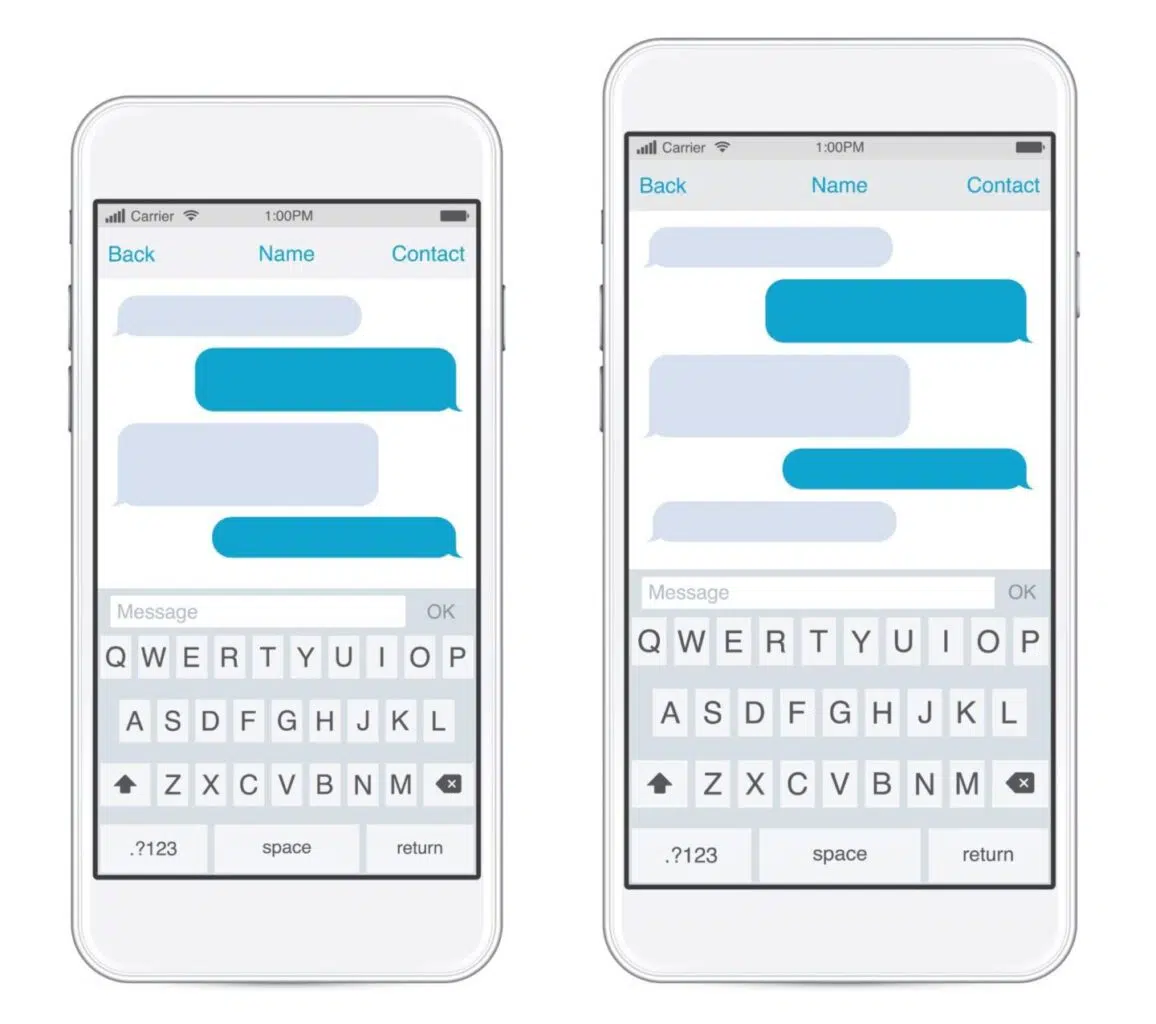
Battery Life
Battery life is essential for many users, especially if you spend lots of time on your phone or are always on the go. The main thing to consider is the battery capacity, measured in milliampere-hours (mAh). Generally, the higher the number, the longer the life. However, other factors, like screen size, resolution and processor speed, can also affect the battery.
Most present-day smartphones have battery capacities ranging from 2,000 mAh to 5,000 mAh. Look for devices within these ranges and consider other factors, such as your average screen time and what apps and features you use.
Battery Life Spotlight: iPhone 13 Pro Max
The iPhone 13 Pro Max takes the crown in this category, with a 4,352 mAH battery, offering around 10 hours of video streaming and almost 19 hours of web browsing1.
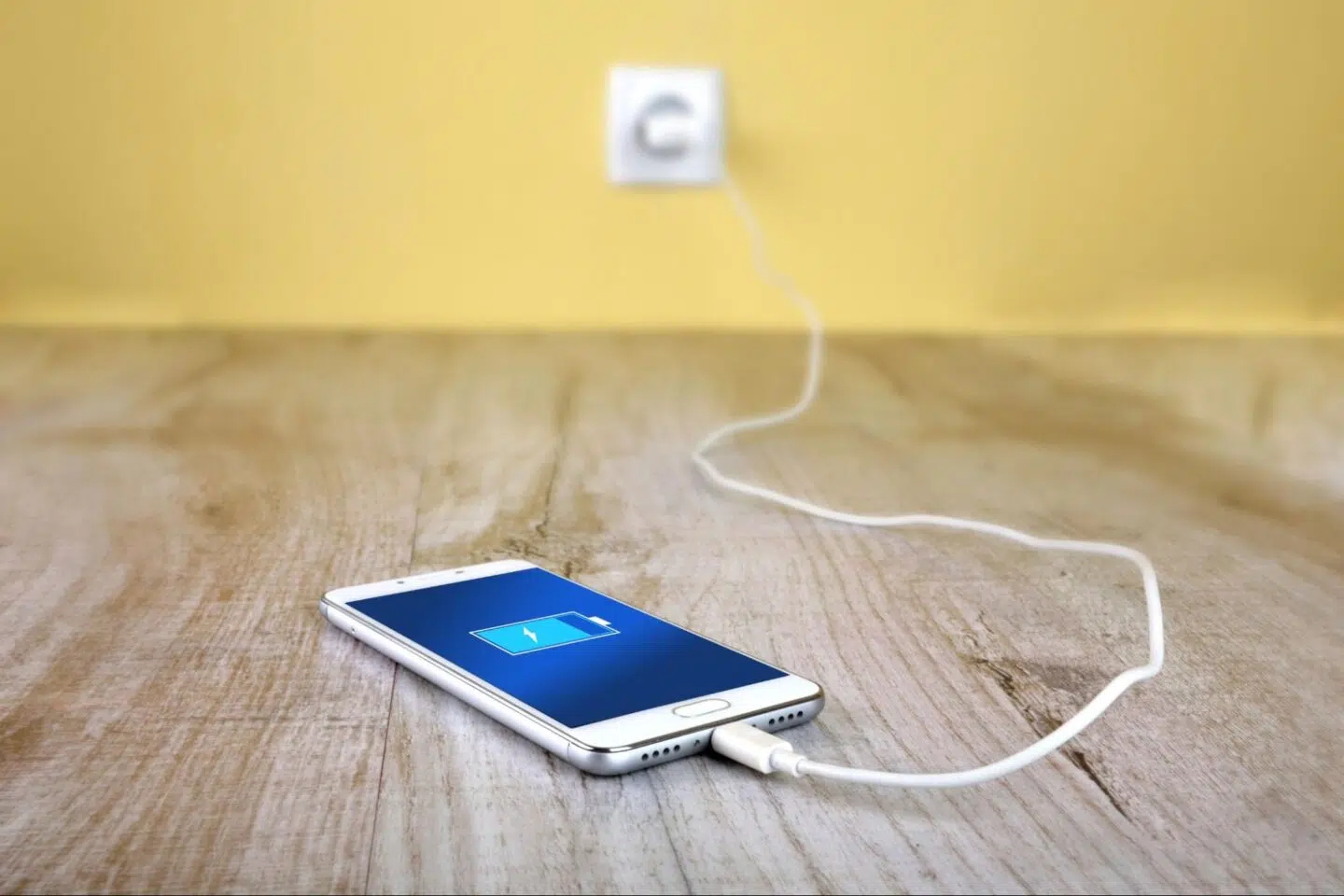
Storage
There are two main types of storage to consider: internal and external.
Internal storage is the capacity built into the device itself. It’s where the operating system, apps, and user data are stored. It’s usually measured in gigabytes (GB), and the amount you get with each model varies. Most devices come with at least 64 GB of internal storage, while some premium smartphones offer up to 512 GB or even 1 TB.
External storage, on the other hand, refers to removable storage devices that you can use to expand the space on your smartphone. The most common type is a microSD card, which can insert into the phone’s card slot. It’s also important to note that not all phones have microSD slots, like iPhones and newer Android devices. In this case, you may need to upgrade your cloud storage or delete data for more capacity.
Storage Spotlight: Samsung Galaxy Note 20 Ultra
The Samsung Galaxy Note 20 Ultra is one of the strongest contenders in this category. This model is hard to beat, with up to 512 GB of internal storage and the option to reach up to 1 TB of expandable storage via microSD card.
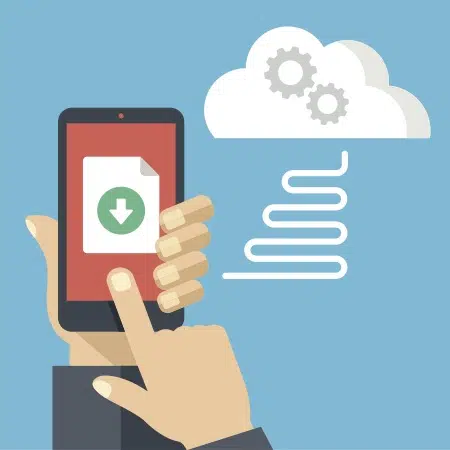
Speed and Performance
When it comes to speed and performance, there are two specific indicators to consider before buying a cell phone:
- Processor: The processor is the “brain” of the smartphone and determines how quickly the device can perform tasks. The speed is measured in gigahertz (GHz). Generally, the higher the number, the better it’ll handle more demanding tasks.
- RAM: Random-access memory (RAM) is a phone’s temporary storage to save data it’s actively using. The more RAM a device has, the more apps it can run simultaneously without slowing down. Devices generally range from 4 to 16 GB of RAM.
When choosing a smartphone, determining how you plan to use it can help you understand the right processor and amount of RAM that you need. If you’re a user who frequently runs demanding apps or games, you may want to opt for a device with a faster processor and more RAM.
Speed and Performance Spotlight: iPhone 13 Pro Max
The iPhone 13 Pro Max offers best-in-class speed and performance with its A15 Bionic Chip. Its processor is perfect for all multitaskers who use demanding apps simultaneously.
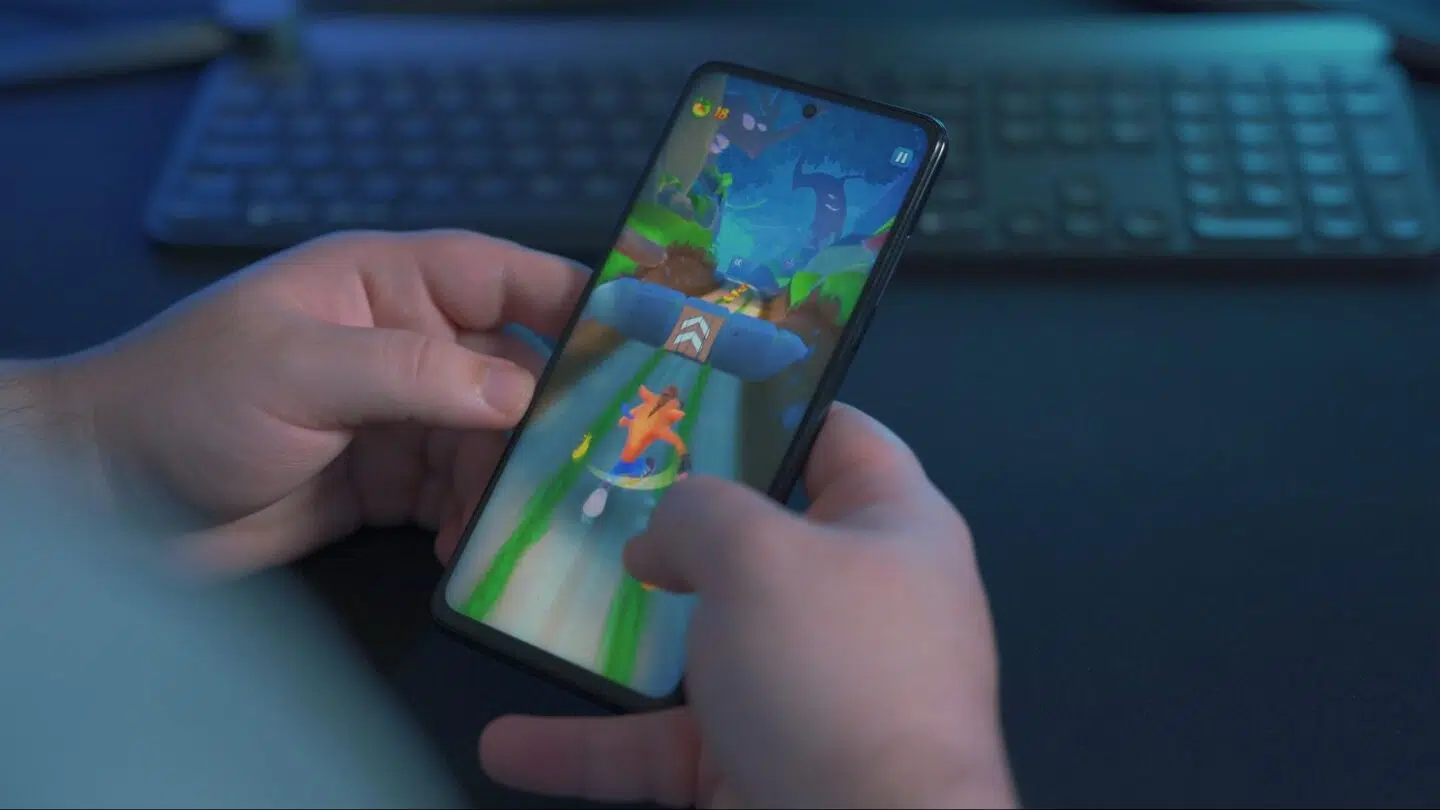
Additional Features
While the above components can make or break your smartphone experience, there are some additional points to consider. With technological advancements, many cell phones today have built-in features that make life more convenient. Here are some examples:
Dual SIM
This feature allows you to use two SIM cards in the same device, which can be helpful if you frequently travel internationally or have two different phone numbers. Some devices may even support eSIM, which removes the hassle of using a physical card altogether.
Water Resistance
Some smartphones are designed with water resistance, meaning they can withstand exposure to water or other liquids to a certain threshold without being damaged. This can be a valuable feature if you frequently use your phone near water or in wet environments.
Wireless Charging
While wireless charging is often not essential, it can be a convenient way to charge your device without dealing with cords and cables.
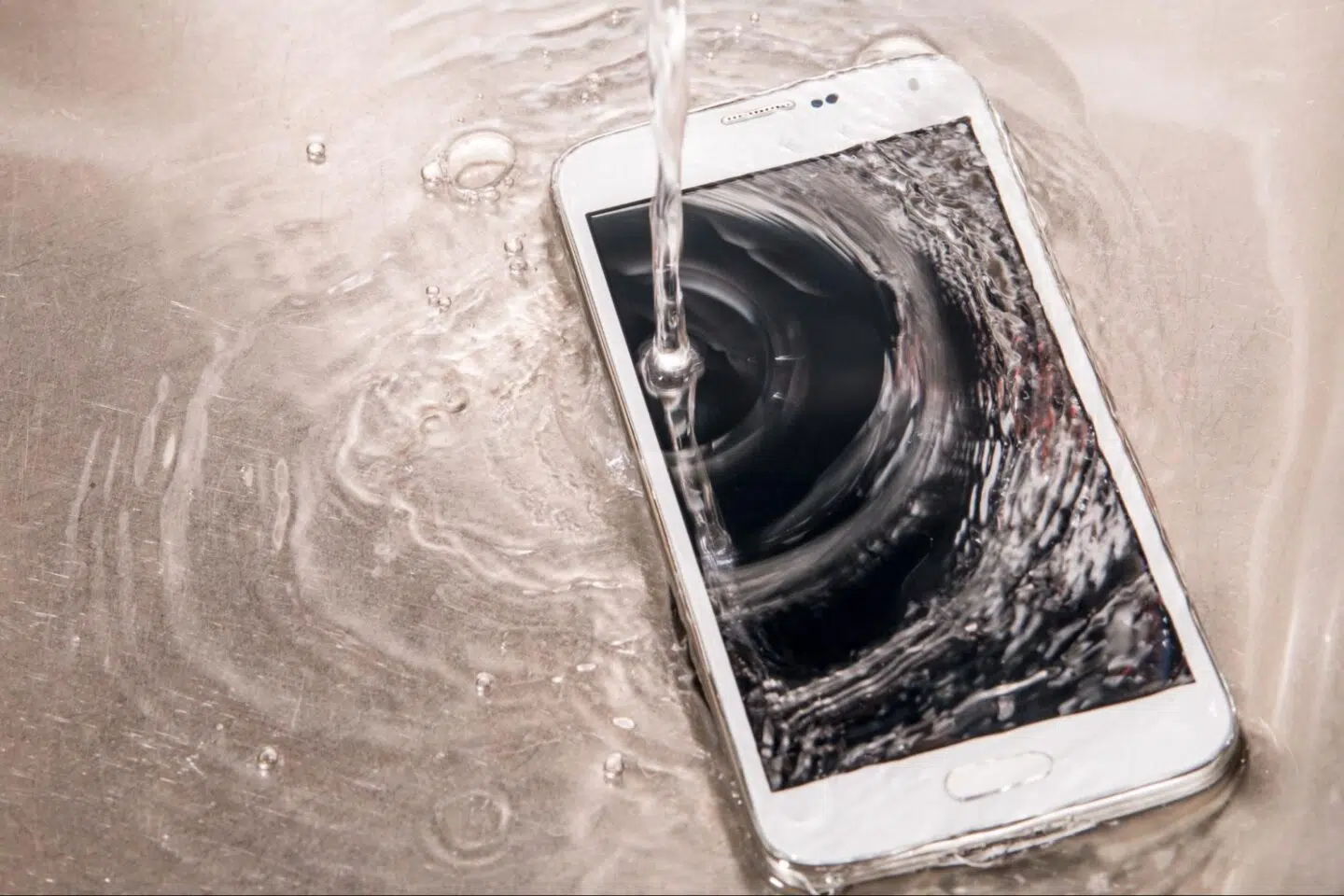
Time for an upgrade?
Save big when you trade in your old phone for a new Certified-Pre-Owned phone. Get the latest features at a fraction of the cost.
Get offer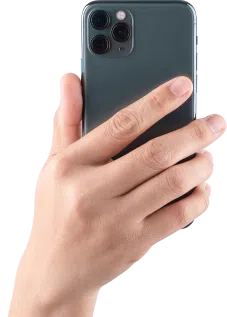
What about 5G?
5G is the latest network technology that offers lower latency, quicker speeds, and higher bandwidth than previous generations of networks like 3G and 4G. It operates at higher frequency bands, transmitting data faster than its predecessors. But what do you need to know about 5G and buying a cell phone?
Under the right circumstances, 5G can offer download speeds 100 times faster than 4G. Whether or not this capability is worth it depends on your usage and location:
- If you frequently stream videos, download large files, or play games on your phone, you’ll likely benefit from the faster speeds and lower latency that 5G offers. However, if you only use your phone for basic tasks like social media and messaging, you may not notice significant differences between 4G and 5G.
- 5G coverage is still limited in many rural or remote areas. Therefore, it’s essential to check the 5G coverage map with your carrier is essential to see if it’s available in your location before purchasing a 5G-enabled device.
Can I Keep my Phone Number?
In most cases, you can keep your phone number when you buy a new smartphone in a process called “number porting.” Whether you’re going to a new carrier or staying with the same one and want a different cell phone, these professionals can transfer your phone number to the new device.
Most people prefer to keep their digits because it’s convenient and saves them from losing their contacts. However, number porting may not be possible if you move to a different country.
Where Can I Buy a Phone in Canada?
You can explore many places when buying a phone in Canada. For example:
- Carrier stores, like Telus, Koodo, or Public Mobile
- Electronic stores, like Best Buy and Staples
- Online retailers like Amazon
- Directly from the manufacturer’s website, like Apple, Samsung, or Google
- Credited third-party retailers, like Mobile Klinik
At Mobile Klinik, we offer expertly refurbished Certified Pre-Owned devices that work like new. The best part about choosing a retailer like us is that you’ll have endless device options, whether you need a basic or high-end device, at a lower price than buying a new smartphone. We are also well-versed in the benefits and drawbacks across various brands, so we can discuss your needs and help you make an informed decision.
Should I Buy my Phone Outright?
There are many advantages to buying your phone outright. Firstly, you have complete control over your device and are not tied to any carrier for a specific period. It may also save you money in the long run as you don’t have to worry about interest on monthly payments. Many carriers will also offer discounted rates for bringing your own device to their network.
However, this option also has its disadvantages. It can be expensive to pay the price of your device upfront. Financing with a carrier can also offer benefits, like trade-in deals, early upgrade offers, and device protection plans.
No matter your decision, we can lend a hand at Mobile Klinik. You can activate with us, and we offer exclusive savings whether you buy a Certified Pre-Owned phone or need to fix your old one.
Wrapping Up
When deciding how to choose a cell phone, it ultimately comes down to your usage, preferences, and situation. It’s essential to understand which features matter the most to you and determine how much you’re willing to spend. These two considerations can guide you to the right purchase and ultimate smartphone experience.
Footnotes:
1 “iPhone 13 series battery life revealed.” https://www.phonearena.com/news/apple-iphone-13-series-battery-capacities-leaked_id132514#:~:text=Apple%20is%20also%20providing%20the,iPhone%2013%20%E2%80%94%2015%20hours




